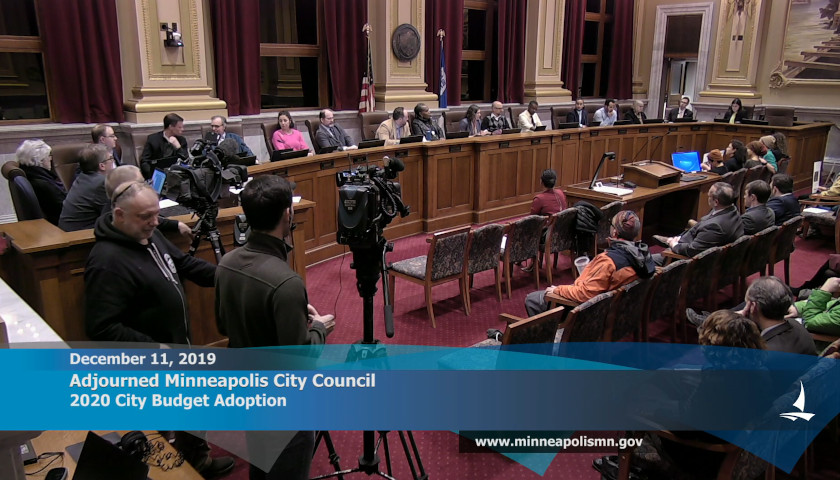by Scott McClallen
The Minneapolis City Council on Wednesday approved a $1.6 billion budget for the 2020-2021 fiscal year funded by the largest property tax levy increase in 10 years.
The city will levy a 6.95 percent property tax increase to fund $31 million for affordable housing and millions to hire and train new police cadets.
Property taxes are projected to rise more than 20 percent next year in less wealthy parts of the city, according to the StarTribune, which calculated that the property tax on a home valued at $264,500 would jump by $109.
The council split 10-3 over the property tax increase. Council Members Phillipe Cunningham, Lisa Goodman and Andrew Johnson dissented.
Minneapolis Mayor Jacob Frey originally proposed hiring 14 more police officers, but after community outcry that that would disproportionately impact people of color, negotiated with council members to instead hire and train up to 38 cadets.
“I even hear it from the police when I’m at community meetings,” Council member Cam Gordon said during the three-and-a-half hour meeting. “We can’t arrest ourselves out of this problem. We don’t hear about the broken window theories anymore, because people realized it was wrong and didn’t work. It led to mass incarceration.”
The majority of the approximately 100 residents who spoke publicly argued additional police funding didn’t address root causes of community violence.
Resident Nicole Miller told the city council that more police won’t solve city problems.
“If policing was going to help our problem, it would have happened by now,” she said, adding that people in “survival mode” are forced to make hard decisions.
Most of those speakers recommended investing in community-based solutions, instead, that would keep residents out of prison and fight drug addiction, mental illness and homelessness.
About $6.3 million will be spent on economic inclusion programs.
The city plans to spend more than $400,000 to reduce opioid abuse and a one-time $31 million to fund pay affordable housing programs, a trust fund for developers building and funding for low-income housing.
John Phelan, an economist at The American Experiment, a nonpartisan Minnesota think tank, said the tax hike will disproportionately impact lower-income parts of the city.
“This is the largest hike in the property tax levy in a decade, and it will be felt most acutely in less wealthy areas of Minneapolis,” Phelan told The Center Square in a statement. “Furthermore, with violent crime up 13 percent in Minneapolis this year, the Mayor has retreated from his pledge to hire 14 new officers.”
“$31 million will be spent on affordable housing investments, but this will do nothing to address the real causes of the city’s affordable housing shortage: the excessive fees and regulations imposed by state and local government,” Phelan said. “Indeed, hiking property taxes to make housing more affordable might just be #peakgovernment.”
– – –
Scott McClallen is a staff writer covering Michigan and Minnesota for The Center Square. A graduate of Hillsdale College, his work has appeared on Forbes.com and FEE.org. Previously, he worked as a financial analyst at Pepsi.




